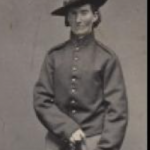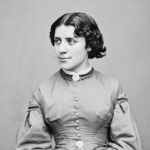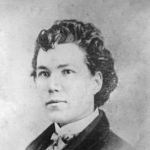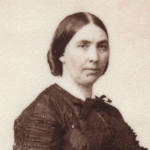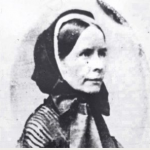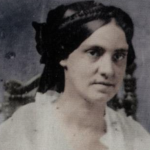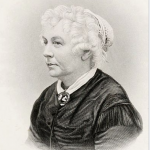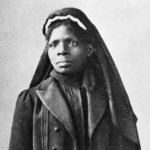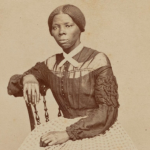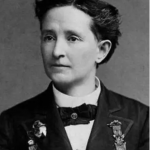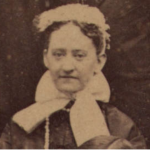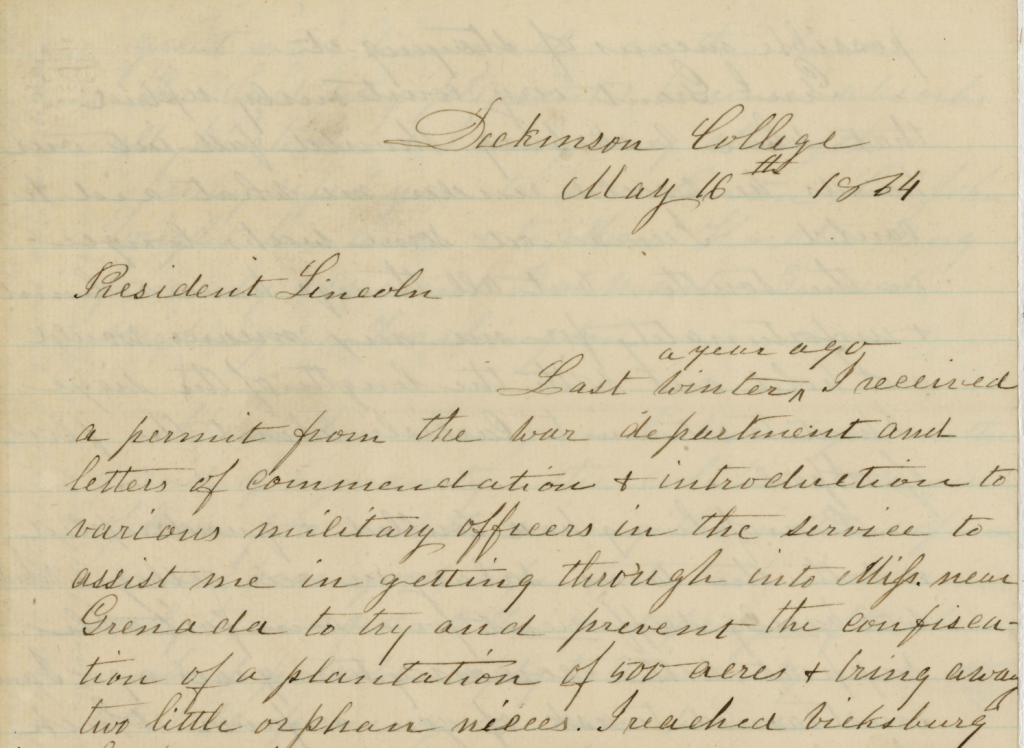Civil War Gallery
How many of these women can you identify and describe?
- Clara Barton
- Frances Clayton
- Dorothea Dix
- Anna Dickinson
- Sarah Edmunds
- Augusta Jane Evans
- Jesse Benton Fremont
- Rose O’Neal Greenhow
- Mary Greenhow Lee
- Phoebe Yates Pember
- Elizabeth Cady Stanton
- Susie Baker King Taylor
- Harriet Tubman
- Elizabeth Van Lew
- Dr. Mary Walker
“The case of enemy women and the laws of war in the American Civil War thus compels us to contend with the larger historical problem of women and war: about how much of that past is disowned—or rendered exceptional—when it is in fact foundational. In the face of all the evidence, Lieber reconstructed the liberal idea of women as passive witnesses to a history made by men. That makes it all the more important to insist on the other history of women, the one he would not own up to, but which materially shaped the laws of war into the twenty-first century.” –Stephanie McCurry, “Enemy Women and the Laws of War in the American Civil War,” Law and History Review (2017)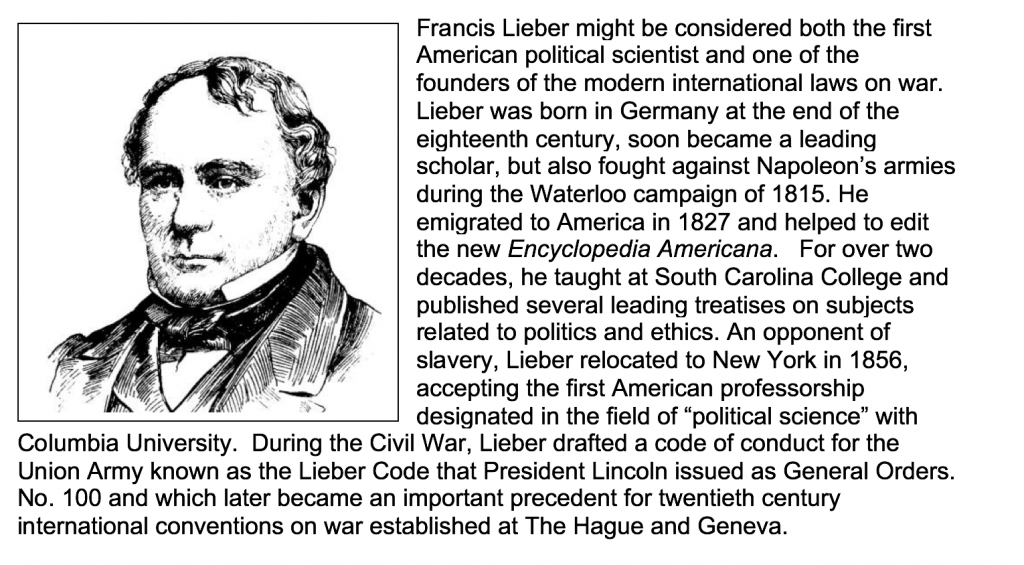
- For full text of Lieber Code online, see The Avalon Project
Excerpts from Section I (Necessity):
Military necessity, as understood by modern civilized nations, consists in the necessity of those measures which are indispensable for securing the ends of the war, and which are lawful according to the modern law and usages of war. Military necessity admits of all direct destruction of life or limb of armed enemies, and of other persons whose destruction is incidentally unavoidable in the armed contests of the war; it allows of the capturing of every armed enemy, and every enemy of importance to the hostile government, or of peculiar danger to the captor; it allows of all destruction of property, and obstruction of the ways and channels of traffic, travel, or communication, and of all withholding of sustenance or means of life from the enemy; of the appropriation of whatever an enemy’s country affords necessary for the subsistence and safety of the army, and of such deception as does not involve the breaking of good faith either positively pledged, regarding agreements entered into during the war, or supposed by the modern law of war to exist. Men who take up arms against one another in public war do not cease on this account to be moral beings, responsible to one another and to God. Military necessity does not admit of cruelty – that is, the infliction of suffering for the sake of suffering or for revenge, nor of maiming or wounding except in fight, nor of torture to extort confessions. It does not admit of the use of poison in any way, nor of the wanton devastation of a district. It admits of deception, but disclaims acts of perfidy; and, in general, military necessity does not include any act of hostility which makes the return to peace unnecessarily difficult.
Excerpts from Section X (Civil War):
All enemies in regular war are divided into two general classes – that is to say, into combatants and noncombatants, or unarmed citizens of the hostile government. The military commander of the legitimate government, in a war of rebellion, distinguishes between the loyal citizen in the revolted portion of the country and the disloyal citizen. The disloyal citizens may further be classified into those citizens known to sympathize with the rebellion without positively aiding it, and those who, without taking up arms, give positive aid and comfort to the rebellious enemy without being bodily forced thereto.
CASE STUDY: Lucena Johnson, First Lady of Dickinson College
Dickinson College, May 16, 1864
President Lincoln
A year ago last winter I received a permit from the war department and letters of commendation & introduction to various military officers in the service to assist me in getting through into Miss near Grenada to try and prevent the confiscation of a plantation of 500 acres & bring away two little orphan nieces. I reached Vicksburg by flag of truce but the rebel commissioners would not permit me to enter. I went back to Memphis & tried the overland route, but after many weeks of trial & discouragement returned to Memphis again and wrote Genl. Grant for permission to take abandoned cotton (He had in the time gone down to Vicksburg & had commenced the siege). Previous to writing him I had learned from [?] agent in Miss that process for confiscation had been commenced [the had no possible means of staying it?]. Genl. Grant very courteously replied that when Vicksburg should fall into our hands he would render me what aid he could. I remained some weeks longer in the South, but all things have a limit and unfortunately for me my means would not hold out with the length of the siege. I had to return to Carlisle about the first of April. Prices of living have doubled and quadrupled & with the same salary in our colleges, which was barely sufficient for a comfortable support with economy ten years ago, I am constrained to ask of you a favor which the above circumstances explain. What I want is a permit to take Gov. or abandoned cotton to the value of the plantation. My husband is President of this college but, since Christmas, nearly all the time absent, trying among those who are getting wealth by the war to get an endowment for the college, which is the Alma mater of many great and honorable in the land. This (not very pleasant) business absorbs all his time & I may say strength…
I am with great respect,
Very sincerely your Friend
Mrs. L.E.C. Johnson
P.S. A little number here meet daily at 6 p.m. to pray for the success of our army. In margin on last page: The plantation came into our hands a little before the war for a debt of 19 years standing & was all we had but of which we have never realized a dollar.


